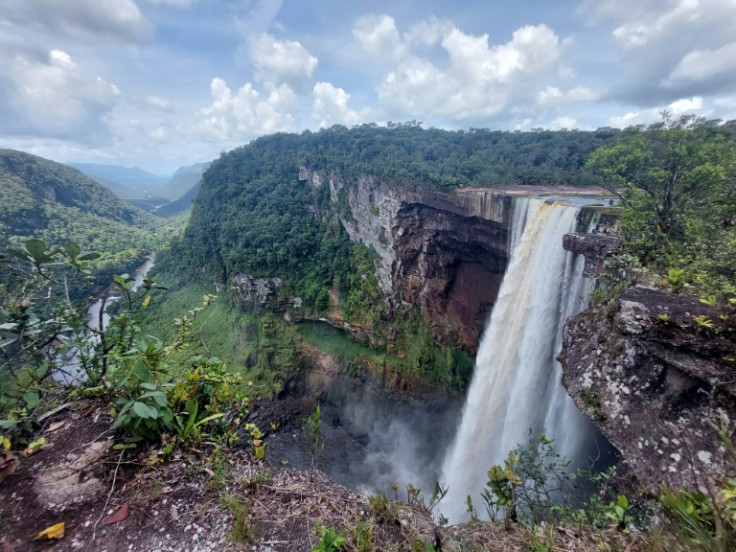
Guyana said Tuesday it will approach the UN Security Council for help if Venezuela makes any moves on a disputed oil-rich region following a referendum Caracas says bolstered its claim to it.
Officials in Caracas said Sunday's referendum yielded a 95-percent "yes" response on whether to lay claim to the Essequibo region and grant Venezuelan citizenship to its inhabitants.
On Tuesday, Guyana's Attorney General Anil Nandlall told AFP that "any action or any attempt to take any action pursuant to the referendum will necessitate a resort to the UN Security Council as an injured party."
He said Guyana would invoke Articles 41 and 42 of the UN Charter which can authorize sanctions or military action to maintain or restore international peace and security.
"In terms of military, it (the UNSC) can authorize the use of armed forces by member states to assist in the enforcement" of any orders from the International Court of Justice (ICJ) in The Hague, Nandlall said.
Guyana has administered Essequibo for over a century and the region makes up more than two-thirds of its territory.
Litigation is pending before the ICJ over where the borders should lie.
Guyana, a former British and Dutch colony, insists the frontiers were determined by an arbitration panel in 1899.
Essequibo is home to 125,000 of Guyana's 800,000 citizens.
But Venezuela -- which does not recognize the ICJ's jurisdiction in the matter -- claims the Essequibo River to the region's east forms a natural border and had historically been recognized as such.
The dispute has intensified since ExxonMobil discovered oil in Essequibo in 2015.
Caracas called Sunday's referendum after Georgetown started auctioning off oil blocks in Essequibo in August.
On Monday, President Nicolas Maduro claimed popular backing for Venezuela's claim on Essequibo following the referendum, whose outcome he said was a "powerful, vital boost."
Guyana had asked the ICJ to block the vote.
On Friday, the court urged Caracas to take no action that might affect the disputed territory, but did not grant Georgetown's request for urgent intervention.
It ruled that Venezuela "shall refrain from taking any action which would modify the situation that currently prevails in the territory in dispute."
On Sunday, Guyana's President Irfaan Ali warned that if Venezuela ignored the court order, "it will be a great injustice to the people of Venezuela because ultimately that path would lead to the suffering of the people of Venezuela."







